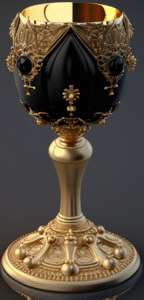

Plato
Plato (c. 427–347 BCE) was a Greek philosopher and student of Socrates, and the teacher of Aristotle. He’s one of the most influential figures in Western philosophy, known for his theory of forms, political philosophy, and founding the Academy, one of the first institutions of higher learning in the Western world.
📚 Key Facts
Full name: Aristocles (Plato was likely a nickname).
Born: In Athens or nearby Aegina, to an aristocratic family.
Student of: Socrates.
Teacher of: Aristotle.
Founded: The Academy in Athens (c. 387 BCE).
💬 Main Works (Dialogues)
Plato wrote in dialogue form, often featuring Socrates as the main speaker. Major works include:
The Republic – Justice, the ideal state, philosopher-kings.
Phaedo – The soul and immortality.
Apology – Socrates’ trial and defense.
Symposium – Love, beauty, and truth.
Timaeus – Cosmology and the nature of the universe.
Meno – Whether virtue can be taught.
🧠 Key Philosophical Ideas
1. Theory of Forms (or Ideas)
The world we see is just a shadow of a deeper, eternal reality.
Forms are perfect, unchanging concepts or ideals (e.g., Beauty, Justice).
Physical objects are imperfect copies of these Forms.
2. The Allegory of the Cave (Republic)
Illustrates how people are trapped in ignorance, only seeing “shadows” of truth.
True philosophers seek to escape the cave and understand reality (the Forms).
3. Tripartite Soul
The soul has three parts:
Reason (rational mind)
Spirit (will/emotion)
Appetite (desires)
A just person has these in harmony, ruled by reason.
4. Ideal Government
Rule by philosopher-kings, who know the Forms and can govern justly.
Criticized democracy (especially Athenian) as flawed and chaotic.
⚖️ Views on Society
Believed society should be structured based on natural aptitude.
Proposed three social classes:
Rulers (wisdom)
Warriors (courage)
Producers (appetite/labor)
🏛️ The Academy
Plato’s school in Athens, active for centuries.
Combined philosophy, science, and mathematics.
Influenced major later thinkers, including Plotinus, Augustine, and early Christian philosophy.
🔍 Legacy
Plato’s ideas shaped metaphysics, epistemology, ethics, and political theory.
He introduced a systematic, rigorous philosophical method.
Many modern debates in philosophy trace back to issues he first raised.
- Ancient Greece
- Socrates
- Plato
- Aristotle